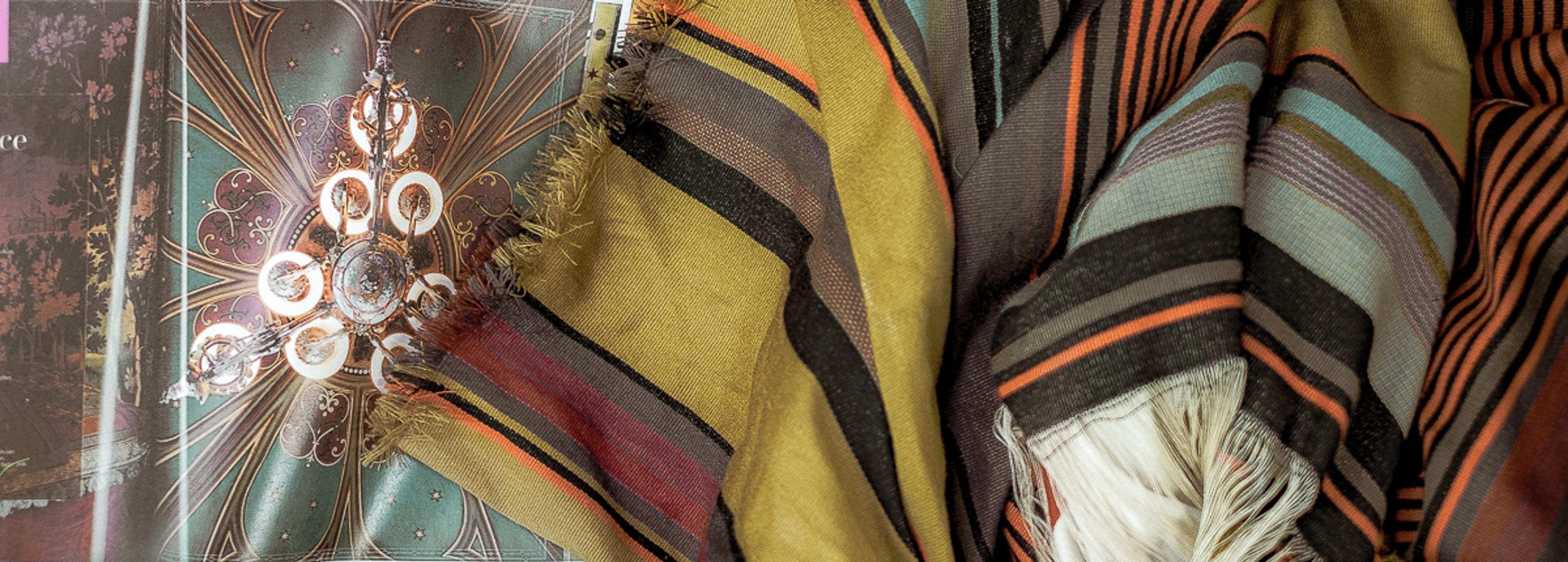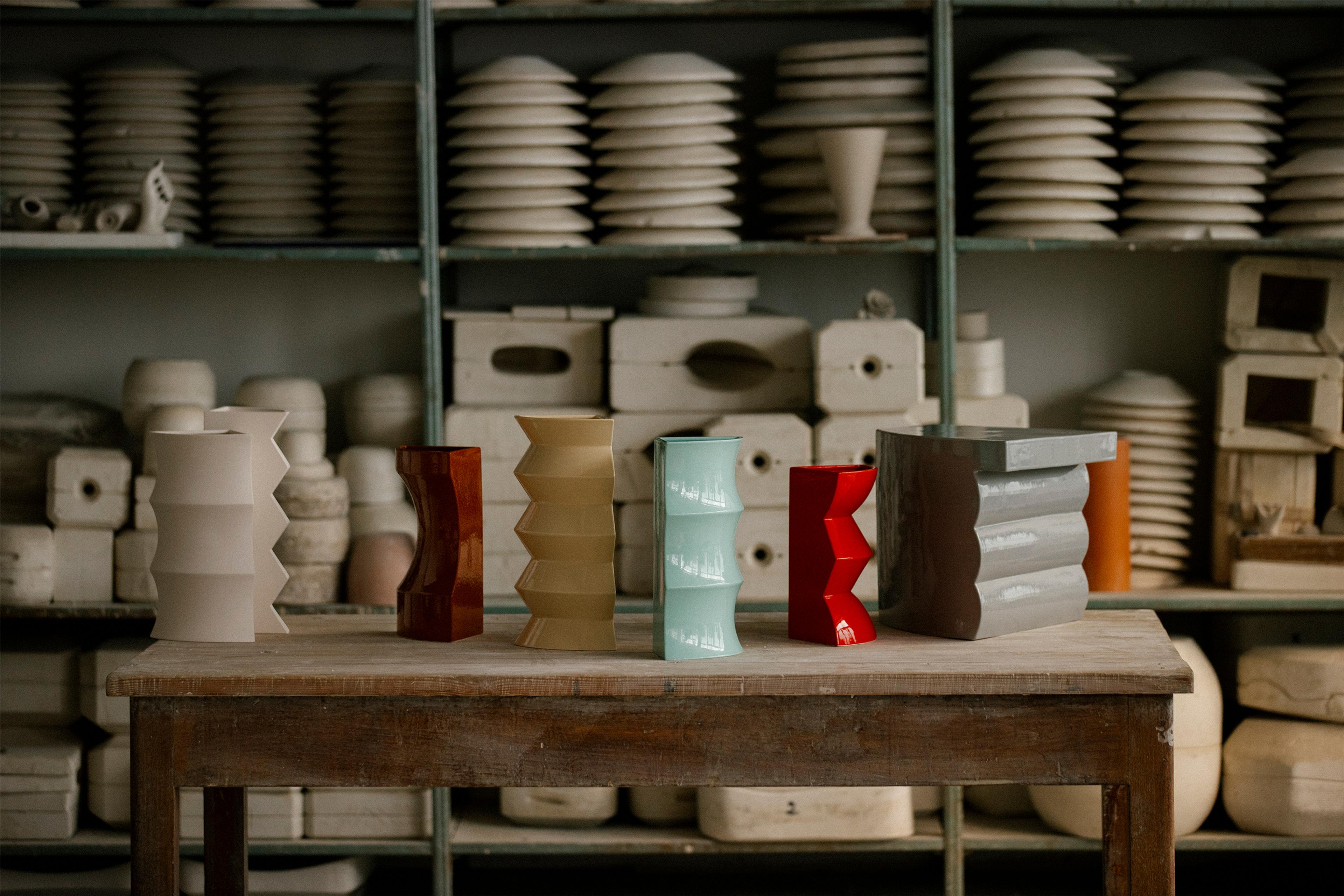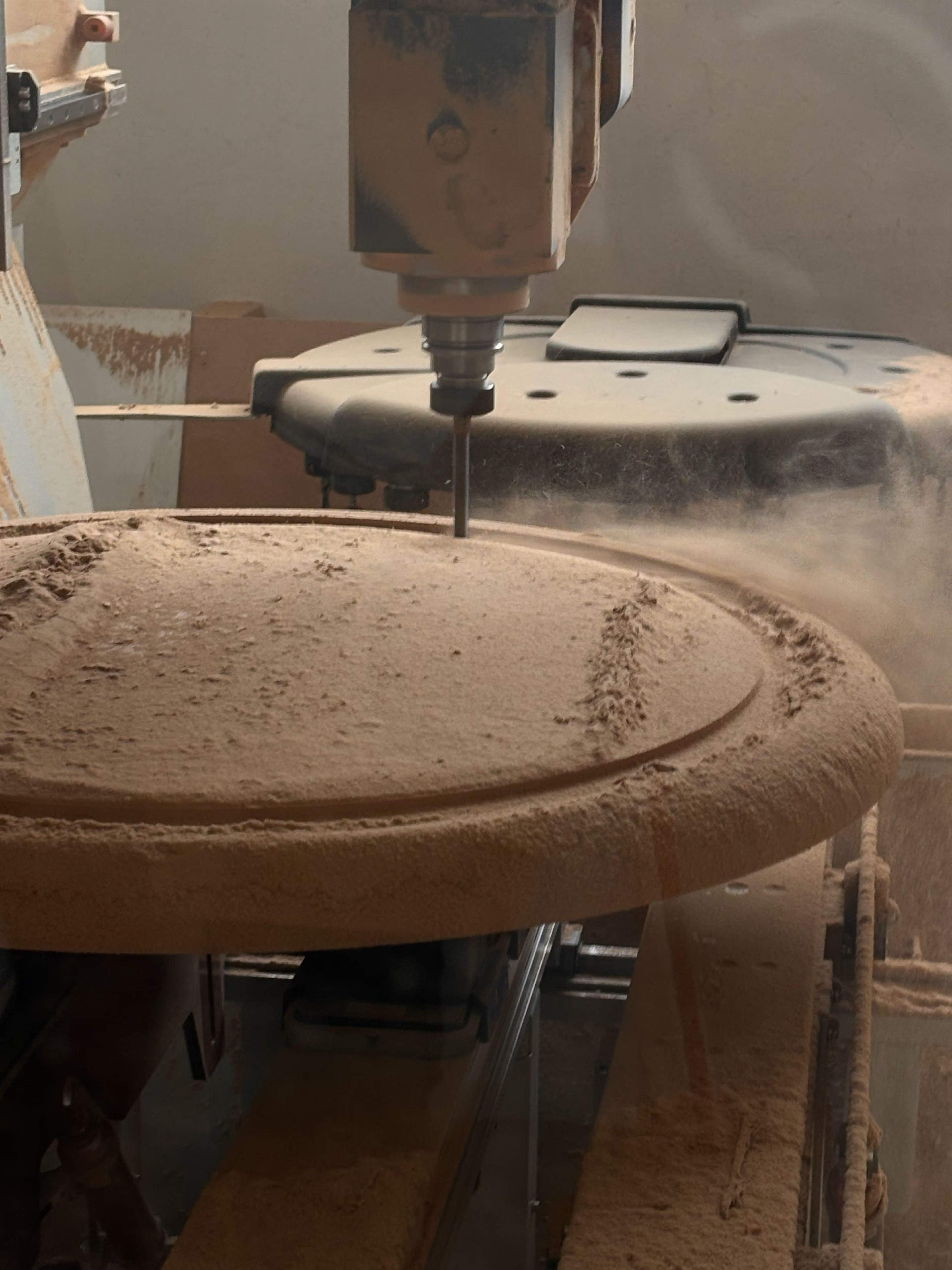
Rischio Quadratisches Kissen
260 EUR
Versandt in 1-2 Wochen

The House of Lyria wurde im toskanischen Herzen der italienischen Textiltradition geboren und kreiert zeitlose Stoffe von höchster Qualität. Angetrieben von der Philosophie der exquisiten Unvollkommenheit, verbindet der Gründer Riccardo Bruni Tradition, Experimentierfreude und Emotionen mit der gefühlvollen Berührung der menschlichen Hand.
Der Inhalt dieser Seite wurde automatisch übersetzt. Besuchen Sie die Website auf Englisch
Das in der toskanischen Stadt Prato ansässige The House of Lyria repräsentiert perfekt das unglaubliche textile Erbe der Region. Die 2002 von Riccardo Bruni gegründete Marke produziert originelle, zeitlose Stoffe und trat 2021 mit ihrer ersten Kissenkollektion in die Welt der Inneneinrichtung ein. Die kreative Vision von Riccardo Bruni ist inspiriert von den Erfahrungen und Geschichten, die er auf seinen Reisen rund um die Welt gesammelt hat, sowie von seinen Erinnerungen. Sein kreativer Geist ist in der Qualität, dem Experimentieren und der traditionellen Handwerkskunst verwurzelt, um künstlerische Stücke mit einer unverwechselbaren nostalgischen Anziehungskraft zu erschaffen.
Das Unternehmen ist nach einer seltenen, spiralförmigen Muschel benannt und symbolisiert die Freiheit des Ozeans. Der gleiche zukunftsorientierte Geist brachte die Marke dazu, mit Naturfasern und unkonventionellen Webtechniken zu experimentieren, um interessante Texturen mit einem schönen rustikalen Look zu schaffen. Lernen Sie die Gründerin von The House of Lyria kennen und entdecken Sie Cartagine, die neue Kollektion in limitierter Auflage.

260 EUR
Versandt in 1-2 Wochen

350 EUR
Versandt in 1-2 Wochen

1465 EUR
Versandt in 1-2 Wochen

240 EUR
Versandt in 1-2 Wochen
Lyria wurde in Prato, dem toskanischen Zentrum der italienischen Textilindustrie, gegründet, um Kreativität und Handwerkskunst zum Ausdruck zu bringen. Welche Verbindung haben Sie zu Ihrer Region und wie spiegelt sich diese in den Produkten von The House of Lyria wider?
Die Toskana ist eine Region mit einer sehr alten und faszinierenden Geschichte, und wenn man bedenkt, was als "neue Renaissance" in der Textilbranche bezeichnet wird, habe ich eine starke Motivation in der Forschung und Tradition gefunden: Ich lasse mich nicht nur von Gemälden inspirieren, sondern auch von allem, was unsere Umgebung, die Natur und die Landschaft ausmacht. Diese Visionen werden zu Ideen, die ich dann zusammen mit meinem Team in die Gewebe und Kettfäden der Lyria-Stoffe umsetze. Es ist wie eine Übersetzung von Impulsen in ein haptisches Erlebnis.
Schon der Name "The House of Lyria" hat eine tiefe Bedeutung, die das Wesen der Marke und ihre Philosophie widerspiegelt. Was bedeutet er und warum haben Sie ihn gewählt?
Lyria hat seinen Namen von einer seltenen, eleganten, spiralförmigen Muschel, einer perfekten Harmonie, die aus der Unvollkommenheit entsteht.
Ihre ästhetische Vision passt auch perfekt zu einer handwerklichen Sensibilität und dem Konzept des grenzenlosen Experimentierens. Wie begann die Reise, die die Marke zur Entdeckung ihrer Identität führte?
Die Reise ist so alt wie die Menschheit: Irgendwann in unserer Entwicklungsgeschichte haben die Menschen erkannt, dass sie weben können und dass sie Kleidung brauchen, um sich zu schützen. Jede Generation trägt mit einer gewissen Innovation zu dieser alten Tradition bei, und ich tue dies, indem ich mit neuen Materialien experimentiere, um einzigartige Stoffe zu schaffen. Ich suche nach Inspiration, würze sie mit Tradition und ein wenig Gefühl und vermische alles mit flüchtigen Visionen, die ich versuche, mit der Vergangenheit zu verbinden. Die Marke wird dort definiert, wo die Nachfrage der Verbraucher entsteht.

225 EUR
Versandt in 1-2 Wochen

1465 EUR
Versandt in 1-2 Wochen

225 EUR
Versandt in 1-2 Wochen

210 EUR
Versandt in 1-2 Wochen

225 EUR
Versandt in 1-2 Wochen

275 EUR
Versandt in 1-2 Wochen
Mit der Cartagine-Kollektion setzt das House of Lyria auf Nachhaltigkeit und schenkt Hunderten von Stoffresten neues Leben. Wie werden Ihre Textilien hergestellt und welche stilistischen Einflüsse vermitteln sie?
Nachhaltigkeit ist heute ein Erfordernis, dem wir Rechnung tragen müssen, nicht nur in Bezug auf das Recycling, sondern auch in Bezug auf die Arbeitskräfte, die in ihren jeweiligen Heimatländern erhalten werden müssen. Ich habe die Kollektion 'Cartagine' (Karthago) genannt, weil sie in Tunis in einer Kooperative entstanden ist, die alte Stoffe zerlegt, um neue Objekte herzustellen. Wir sind sehr stolz darauf, diesen Weg eingeschlagen zu haben, auch wenn es bedeutet, dass wir das Projekt und die Details des Produktionsprozesses der breiten Öffentlichkeit näher bringen müssen, was uns zu einem nachhaltigeren Denken anregt.
Die Philosophie der Unvollkommenheit, die in dem japanischen Ausdruck "Wabi-Sabi" zum Ausdruck kommt, ist eines der wichtigsten Konzepte der Marke. Was bedeutet sie und wie kann sie im Bereich des Textildesigns umgesetzt werden?
Die Philosophie der Unvollkommenheit ist das Menschlichste, was es gibt. Der Gedanke, perfekt zu sein, ist eine enorme psychologische Belastung, und ich verstehe nicht, warum wir uns dessen nicht bewusst sind. Wabi-Sabi ist eine Verherrlichung der Unvollkommenheit, eine Lebenskunst, während ich glaube, dass das, was uns auffällt, oft als Makel und nicht als Tugend angesehen wird. Wabi-Sabi" ist ein wertvoller Beweis für Qualität und Luxus, der Beweis, dass der Handwerker kein Roboter ist.

Seit über einem Jahrhundert ist Bitossi Ceramiche eine Brücke zwischen Tradition und Innovation. D…

BottegaNera verwandelt Möbel in ausdrucksstarke Kunstwerke, indem es die Präzision der italienisch…